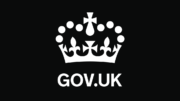The Regulator of Social Housing (RSH) has announced the rollout of Tenant Satisfaction Measures (TSMs) - a new framework requiring all registered social landlords to collect and publish annual data on repairs, safety checks, and tenant complaints. The move, effective from 2023, marks a major step toward greater transparency and accountability in the social housing sector.
RSH introduces data-driven oversight for social landlords
Under the new measures, both housing associations and local authorities will be required to gather feedback from tenants and provide detailed performance data to the regulator. The information will be made public, allowing tenants to compare landlords’ performance on key issues such as building safety, repair timeliness, and complaint resolution.
The data will also serve as an intelligence source for the Regulator of Social Housing, helping identify landlords that may be falling short of required standards.
RSH chief executive Fiona MacGregor said:
“The launch of TSMs is an important step in the move to proactive consumer regulation. The new measures will provide valuable data to help ensure social housing landlords provide safe homes of a decent standard and a quality service to tenants.”
She added that local authorities and housing associations “must now ensure they have the systems and processes in place” to collect data consistently.
Tenant-led transparency and sector response
The new system follows a consultation involving more than 1,000 responses, including around 600 from tenants. Most respondents backed the proposals, describing the measures as a practical way to make landlord performance more transparent.
In response to feedback, the regulator refined several indicators to improve clarity and ensure results are comparable across regions. The data will be drawn from both management records and tenant perception surveys, which providers will conduct annually.
RSH said the approach strikes “a balance between consistency and flexibility” - ensuring landlords of different sizes and structures can implement the measures effectively while maximising tenant participation.
For larger social landlords - those managing over 1,000 homes - reporting will be mandatory, with data submitted directly to the regulator each year. Smaller providers will still need to gather information internally for their own governance and tenant engagement.
Implications for private and professional landlords
While the rules apply only to social housing, many in the private rented sector (PRS) will be watching closely. The government’s new Renters’ Rights Act introduces a similar push for accountability, including a national landlord database and tenant redress scheme.
For professional landlords, the TSM rollout offers a preview of what’s to come - a data-led approach where transparency and tenant satisfaction form part of broader housing regulation. As social landlords adopt more structured reporting, private investors may soon face comparable expectations under evolving consumer standards.
According to landlord groups, the focus on tenant satisfaction should be welcomed, provided it doesn’t evolve into “bureaucracy for bureaucracy’s sake.” Instead, they argue, data collection should help improve property management efficiency and highlight responsible landlords who already maintain high standards.
As landlords adapt to these heightened reporting expectations, technology is starting to play a central role in how tenant feedback and maintenance data are managed. Platforms such as AskLettie now allow landlords to automate maintenance triage and communication through AI, ensuring every repair request is time-stamped, logged, and auditable. For social housing providers in particular, such tools can simplify compliance with tenant satisfaction measures by creating a clear digital trail of responsiveness - reducing administrative workload while improving tenant confidence in repair transparency.
Editor’s view
The introduction of tenant satisfaction measures represents a pivotal shift in housing regulation - one that will likely ripple beyond the social sector. As data-led accountability becomes the norm, landlords who embrace digital tools to record, respond, and report on maintenance issues will gain a significant compliance advantage. The emergence of AI-driven systems such as AskLettie shows how technology can transform regulation from a paperwork exercise into a transparent, automated process that benefits both landlords and tenants. In a housing landscape where responsiveness increasingly defines reputation, the ability to evidence action may soon be just as valuable as the action itself.
Author: Editorial team - UK landlord & buy-to-let news, policy, and finance.
Published: 12 November 2025
Sources: Regulator of Social Housing (RSH), Gov.uk, Consultation on Tenant Satisfaction Measures, National Housing Federation
Related reading: Renters ‘flathugging’ as high costs and fear of rent rises trap tenants








